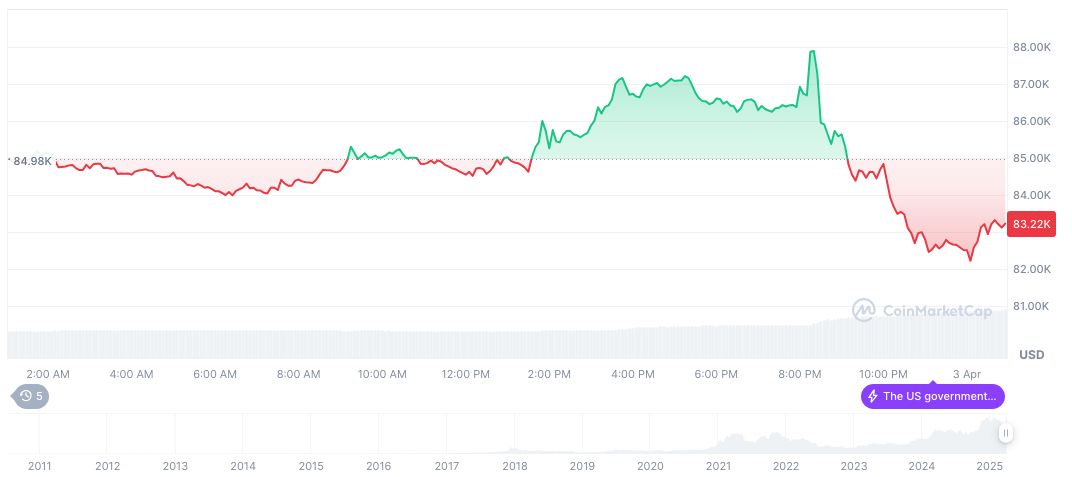- Trump’s global tariffs positioned as a response to national emergency.
- White House instructs no negotiation basis.
- BMAN notes 95% crypto bear market.
White House officials have instructed surrogates that Trump’s new global tariffs are a national emergency measure, not for negotiations.
The positioning of tariffs as an emergency response underscores potential shifts in global trade dynamics and signals Trump’s inward policy focus.
Tariffs Framed as National Emergency Amid Global Concerns
The White House distributed internal directives describing Trump’s global tariff plans as a response to an emergency. According to The Washington Post, three inside sources revealed that officials were told to avoid presenting the tariffs as open to negotiation. These instructions came amidst ongoing interpretation of Trump’s new import tax strategies.
This guidance could affect international relations and economic policies. The characterization of tariffs as emergency measures implies a hardline stance without immediate prospects for diplomatic dialogue. This has caused concern among global partners interpreting these measures as unyielding.
Community reactions have been mixed, with market sentiment reflecting uncertainty. BMAN of ABCDE highlighted a predominantly bearish market, stating, “95% of the time in the crypto market is a bear market,” while emphasizing the short duration of bull markets. Bloomberg’s Mike McGlone warned of significant risk in correlated markets like Ethereum if the current situation persists.
Crypto Market Challenges with Tariff-Driven Economic Pressures
Did you know? The last major market downturn mirrored current bearish dynamics, with long-term holders accumulating while funding rates remained negative, indicating sustained negative sentiment.
As of recent CoinMarketCap data, Bitcoin valued at $81,939.72 reflects a market cap of 1.63 trillion dollars, presenting a trading volume shift of 27.62%. The price experienced declines of 5.60% and 16.90% over 24-hour and 90-day periods, respectively. These figures emphasize ongoing market downturns.

The Coincu research team highlights potential market volatility due to tariff implications and tight Bitcoin liquidity. They project increased volatility due to changing economic conditions and limited liquidity from mining activities. The broader impact on crypto markets may extend to heightened regulatory scrutiny and expansive technological shifts in response to economic pressures.























